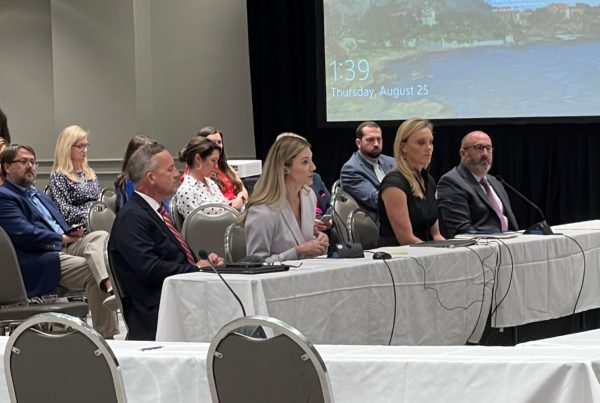August 26, 2022 3:20pm
GLI testifies on local tax reform
On Thursday, GLI’s vice president of government affairs and communications, Shelby Somervell, testified before a joint committee of the House Local Government and the Senate State and Local Government Committees on the need to modernize the local tax structures for city and county governments in Kentucky.
State Representative and House Local Government Committee Chair Michael Meredith (R-Oakland) has championed local tax reform and noted that decades of task forces and studies have come to the same conclusion: local tax reform is needed to ensure that cities and counties can fund essential services while positioning them to compete at the regional and national levels.
Currently, local governments are limited to the taxes they can impose by Section 181 of the Kentucky Constitution (which dates back to 1891). The section outlines a few taxation options, including property, occupational, insurance premium taxes and franchise fees. House Bill 475, filed by Rep. Meredith during the 2022 regular legislative session, would have amended the Kentucky Constitution to allow the General Assembly to set new, modern parameters for local governments to produce revenue. HB 475 passed the House with broad support and Rep. Meredith stated that he intends to file similar legislation in an upcoming session.

In her testimony, Somervell emphasized the impact that tax changes at the local level would have in making Kentucky more competitive with other states in the areas of economic development and talent. She added that the positive effects of the General Assembly’s reform to state personal income tax during the most recent legislative session would not be fully realized unless similar changes moving away from productivity taxes are made at the local level.
In Louisville, occupational taxes account for 57% of Louisville Metro’s operating budget, putting the burden on the operations of city services on the local residents. Amending the constitution and allowing the General Assembly to set parameters for modern local tax structures would allow cities like Louisville to shift some of the economic burden to consumption-based revenue.
Joining GLI in support of these policies was J.D. Chaney, CEO of Kentucky League of Cities, Jim Henderson, CEO & Executive Director of KACo, and Andi Johnson, Chief Policy Office and Director of Regional Engagement for Commerce Lexington.

